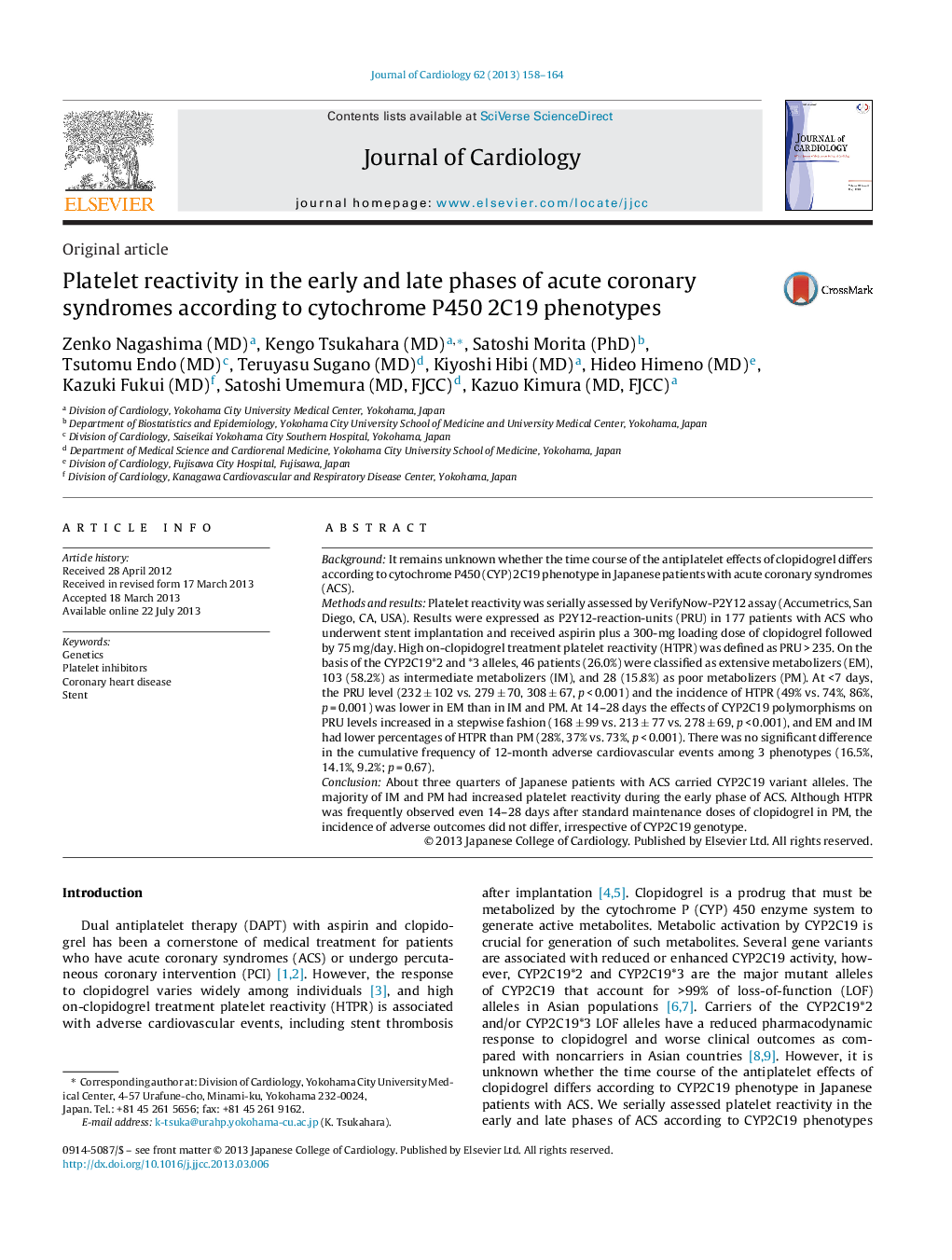| Article ID | Journal | Published Year | Pages | File Type |
|---|---|---|---|---|
| 5984310 | Journal of Cardiology | 2013 | 7 Pages |
BackgroundIt remains unknown whether the time course of the antiplatelet effects of clopidogrel differs according to cytochrome P450 (CYP) 2C19 phenotype in Japanese patients with acute coronary syndromes (ACS).Methods and resultsPlatelet reactivity was serially assessed by VerifyNow-P2Y12 assay (Accumetrics, San Diego, CA, USA). Results were expressed as P2Y12-reaction-units (PRU) in 177 patients with ACS who underwent stent implantation and received aspirin plus a 300-mg loading dose of clopidogrel followed by 75 mg/day. High on-clopidogrel treatment platelet reactivity (HTPR) was defined as PRU > 235. On the basis of the CYP2C19*2 and *3 alleles, 46 patients (26.0%) were classified as extensive metabolizers (EM), 103 (58.2%) as intermediate metabolizers (IM), and 28 (15.8%) as poor metabolizers (PM). At <7 days, the PRU level (232 ± 102 vs. 279 ± 70, 308 ± 67, p < 0.001) and the incidence of HTPR (49% vs. 74%, 86%, p = 0.001) was lower in EM than in IM and PM. At 14-28 days the effects of CYP2C19 polymorphisms on PRU levels increased in a stepwise fashion (168 ± 99 vs. 213 ± 77 vs. 278 ± 69, p < 0.001), and EM and IM had lower percentages of HTPR than PM (28%, 37% vs. 73%, p < 0.001). There was no significant difference in the cumulative frequency of 12-month adverse cardiovascular events among 3 phenotypes (16.5%, 14.1%, 9.2%; p = 0.67).ConclusionAbout three quarters of Japanese patients with ACS carried CYP2C19 variant alleles. The majority of IM and PM had increased platelet reactivity during the early phase of ACS. Although HTPR was frequently observed even 14-28 days after standard maintenance doses of clopidogrel in PM, the incidence of adverse outcomes did not differ, irrespective of CYP2C19 genotype.
